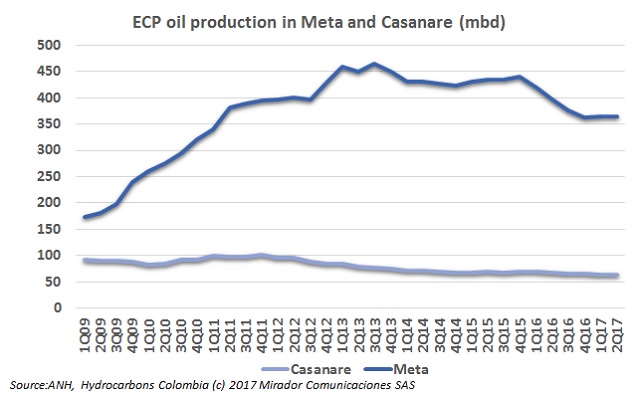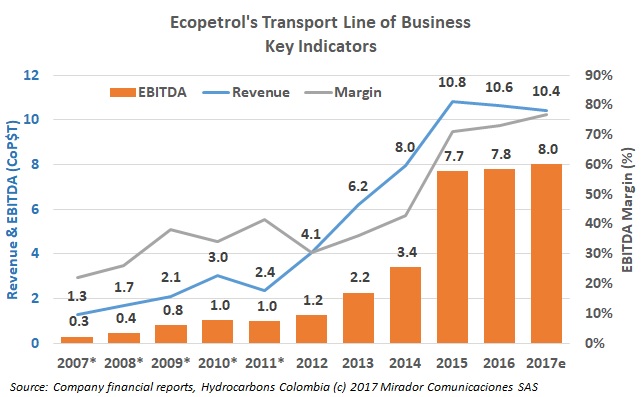GasThe High Councilor for the Post-Conflict, Rafael Pardo, attended the socialization of the ‘Gas for the Post-Conflict’ program, which wants to turn the cylinders that were once used as war weapons into a symbol of peace and rural development.

A new problem begins to emerge for Ecopetrol (NYSE: EC) due to the fact that the USO initiated blockades in different strategic points the departments of Meta and Casanare.
Expo Oil &Gas held a debate between presidential candidates. Politicians of different ideologies like Gustavo Petro, Juan Carlos Pinzón, Frank Pearl and Ivan Duque were at the event. HCC brings a brief summary of this interesting debate.

Mauricio Cárdenas, Minister of Finance (MinHacienda) participated in the celebration of 10 years of Ecopetrol (NYSE: EC) in the stock market. He spoke about government plans for Cenit, an ECP transport company.
In 2018, Ecopetrol (NYSE:EC) will make investments of between US$3.5M and US$4M; an increase of between 35% and 55% compared to investments made in2017.
Operations at Ecopetrol’s (NYSE: EC) Cantagallo field (Bolívar) were halted once again, this time, by 70 workers thatstarted a blockade demandingbetter labor conditions. These and other Corporate Social Responsibility (CSR) stories in our periodic summary.
The ‘Colombia Offshore: challenges and opportunities’ panel took place at this year’s Expo Oil & Gas. HCC attended the event.
Representatives of the sector discussed Ecopetrol’s (NYSE: EC) fracking pilot proposal at Expo Oil & Gas 2017.
A panel discussion at the recent Campetrol Expo Oil & Gas 2017 entitled “Viable environments for sustainable petroleum development” showed more agreement than controversy. The moderator was disappointed.
Last week we started our two-part look at the opportunities and challenges of developing oil and gas projects in Peru. In our concluding chapter, we look at the Amazon region, which has familiar conditions to those of the Colombian Amazon.